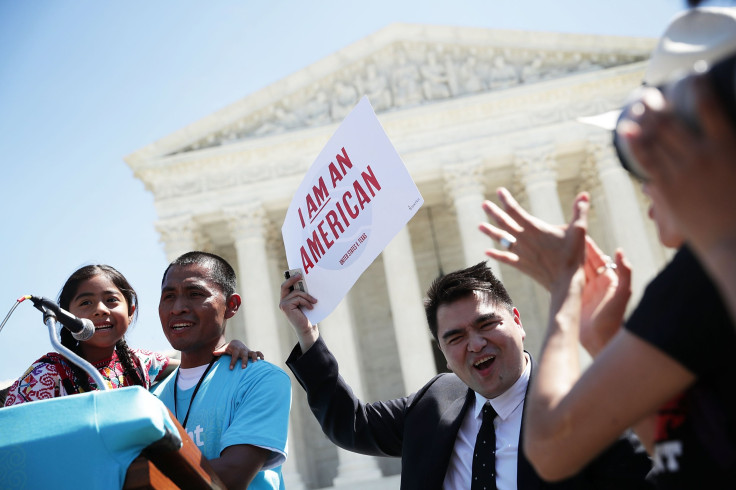Will 'Dreamers' Be Allowed To Stay In US? Supreme Court Hears Arguments About DACA Program

The U.S. Supreme Court’s conservative majority indicated Tuesday it would not second-guess the Trump administration’s decision to end the program that protects so-called dreamers from deportation.
In arguments over the Deferred Action for Childhood Arrivals program, the justices indicated they were sympathetic to some 800,000 people who were brought to the United States without documentation as children but questioned whether the court had the authority to weigh in on the decision.
Then-President Barack Obama created the DACA program by executive order. It protects dreamers from deportation and allows them to obtain Social Security cards, drivers licenses and other benefits. Many of those recipients were so young when they were brought to the United States, they have no memory of their native countries.
Since the program was created by executive order and not congressional action, the administration argued it could be ended at any time. Tuesday’s arguments in the three cases that were combined before the court lasted 80 minutes with justices expressing concern the administration did not consider the effects of canceling the program. Proponents of DACA argued the administration’s action violated the Administrative Procedure Act.
Solicitor General Noel Francisco, arguing for the administration, urged the court not to get involved, saying the decision is not subject to judicial review. The government also argued the program itself is illegal because it ignores immigration law.
Trump defended his decision to end the program on Twitter, saying those covered by the program are “no longer very young [and] are far from ‘angels.’ Some are very tough, hardened criminals.” He also challenged Obama’s right to sign the order in the first place.
https://twitter.com/realDonaldTrump/status/1194219655717642240?s=20
In reality, the program has strict requirements, including precluding people who had committed serious crimes from participating. It also only covers people who arrived in the United States before they turned 16 and were younger than 31, had lived in the United States for at least five years, and had graduated from high school or joined the military. DACA status was renewable every two years but did not provide a path to citizenship.
Trump promised if the Supreme Court sides with the administration, he will make “a deal” with Democrats to protect DACA recipients.
In announcing his 2017 decision to end the program, Trump said he did not “favor punishing children” but the program was “unconstitutional and cannot be successfully defended in court.”
Anti-immigrant rhetoric was a mainstay of Trump’s 2016 presidential campaign and since taking office, he has moved to limit legal as well as illegal immigration. In negotiations with Congress, he offered to trade DACA for funds to build his wall along the U.S.-Mexico border.
© Copyright IBTimes 2025. All rights reserved.






















